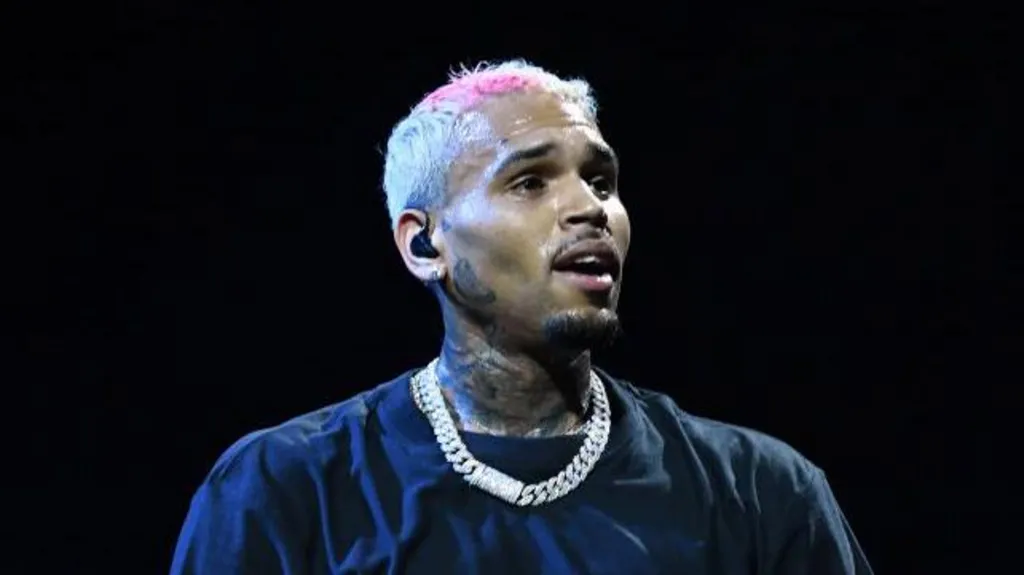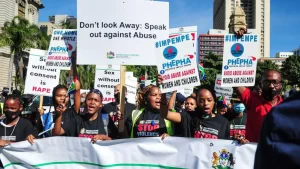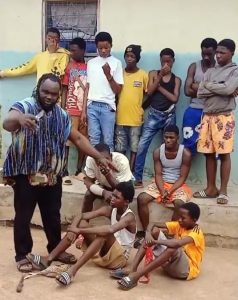Chris Brown’s Concert Sparks Debate on Violence Against Women in South Africa
3 min read
Chris Brown’s upcoming concert in South Africa has ignited renewed attention on the alarming levels of violence against women in the country. With campaigners expressing concern over his past abusive behavior, many argue that his performance sends a troubling message.
Tickets for the concert at Johannesburg’s FNB Stadium, Africa’s largest stadium with a capacity of over 94,000, sold out in under two hours. The overwhelming demand even prompted the addition of a second concert date in December. However, alongside the excitement from fans, a significant backlash has arisen due to Brown’s history of violence.
Sabina Walter, executive director of Women for Change, an organization advocating for women’s and children’s rights, expressed her shock and disappointment upon hearing the news of Brown’s concert. In response, her group launched a petition aimed at preventing him from performing, which has garnered over 20,000 signatures. “The petition was started to send a strong message that we will not tolerate the celebration of individuals with a history of violence against women,” she emphasized, particularly in a country like South Africa, which grapples with severe gender-based violence.
South Africa is notorious for its high rates of femicide and gender-based violence, with a rape reported approximately every 12 minutes. Many incidents go unrecorded, further obscuring the true extent of the crisis. Walter criticized the decision to host Brown, stating, “When someone like Chris Brown is given a platform in a country where gender-based violence is at crisis levels, it sends a damaging message—that fame and power outweigh accountability.”
Chris Brown’s history of violence includes a high-profile domestic incident with singer Rihanna in 2009, for which he pleaded guilty to assault and was sentenced to probation, community service, and domestic violence counseling. Despite his past, he has continued to face allegations of abuse from other women and men. Women for Change is questioning how the Department of Home Affairs granted a visa to “a convicted abuser.” Walter described the decision as “concerning and indicative of a systemic failure.”
Under South African law, a prior conviction can lead to a visa denial, but exceptions can be made for “good cause,” requiring approval from the Director General of the Department of Home Affairs. Brown has faced bans from entering countries like the UK, Australia, and Canada, although he has subsequently performed in some of those regions.

Despite the controversy, many South Africans remain enthusiastic about the concert. Former University of Cape Town vice-chancellor Prof. Mamokgethi Phakeng expressed her intention to attend, stating, “I am totally against GBV and condemn it. But let me be clear: I am going to attend Brown’s concert if he comes.” She argued that enjoying music does not equate to condoning the artist’s past actions, highlighting that “music is bigger than the individual.”
Prof. Phakeng suggested that boycotting the concert wouldn’t eliminate gender-based violence in South Africa. “Attending the concert does not magically erase our moral stance on GBV,” she noted. Fans have expressed excitement online, with one stating, “Chris Brown coming to South Africa??… I’ll take a loan for a meet & greet.”
Walter, however, has faced threats for her campaign against Brown. “Supporters of Chris Brown seem ready to defend him at any cost,” she remarked, indicating a troubling disconnect in societal attitudes toward violence against women. She warned that selective outrage perpetuates a culture that excuses abusive behavior, ultimately contributing to the ongoing violence women face.
South African President Cyril Ramaphosa has acknowledged the significant issue of gender-based violence in the country. In August, he called on men to take a stand against it. “Our ultimate goal is to end gender-based violence altogether,” he stated, yet progress remains slow. Five years after he first addressed the “rape crisis,” little has changed.
Women for Change has honored over 200 women who lost their lives to femicide this year alone. Walter insists that the fight against violence is about more than just this concert; it’s about changing the narrative in South Africa to ensure that abusers are held accountable and that violence against women is never excused, overlooked, or forgotten.





